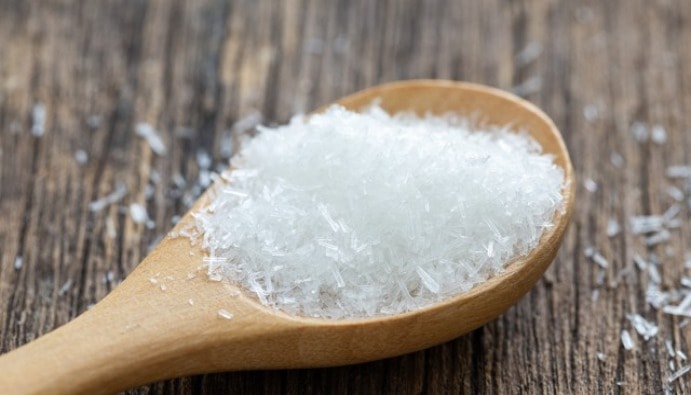
BLOG
KATEGORİDEKİ DİĞER YAZILAR

Monosodium glutamate (MSG), popularly known as “Chinese Salt”, is an additive used in many foods. Monosodium glutamate is the sodium salt of glutamic acid. While glutamic acid is used to regulate acidity in foods, its salts are used to give flavor. MSG is one of the most commonly used salts.
MSG, which has the code E621, stimulates the nerves responsible for taste and causes the desire to eat more. MSG is used more than glutamic acid in food production because it dissolves quickly and easily.
It can be obtained from vegetable proteins such as gluten and soy protein, as well as from molasses by bacterial fermentation.
MSG is a legal additive in EU and Turkish legislation. It is recommended that MSG should not be used in prepared foods for infants under 12 months of age. Although this has led to a debate on the use of MSG, the FDA has stated that “MSG is safe for most people in certain amounts”. However, it causes the so-called “Chinese Restaurant Syndrome” with symptoms such as headache, chest pain, shortness of breath, sweating and edema.
MSG stimulates the “umami” taste in addition to the 4 basic tastes: sweet, sour, bitter and salty. MSG is mostly used in many processed foods such as soups, ready meals, chips, sauces and canned foods.
Within the scope of the Turkish Food Codex Communiqué on Food Additives Other Than Colorants and Sweeteners, the daily consumption rate of glutamic acid and its salts is specified as 0.10 g / kg.
Nanolab Laboratories Group continues to provide services within the scope of Monosodium Glutamate (MSG) Determination. We also provide services in determination of Food Additives.
Contact us for more information.
You can follow us on LinkedIn for up-to-date news and posts about our services.
Follow our Instagram account to be informed about our latest blog posts.